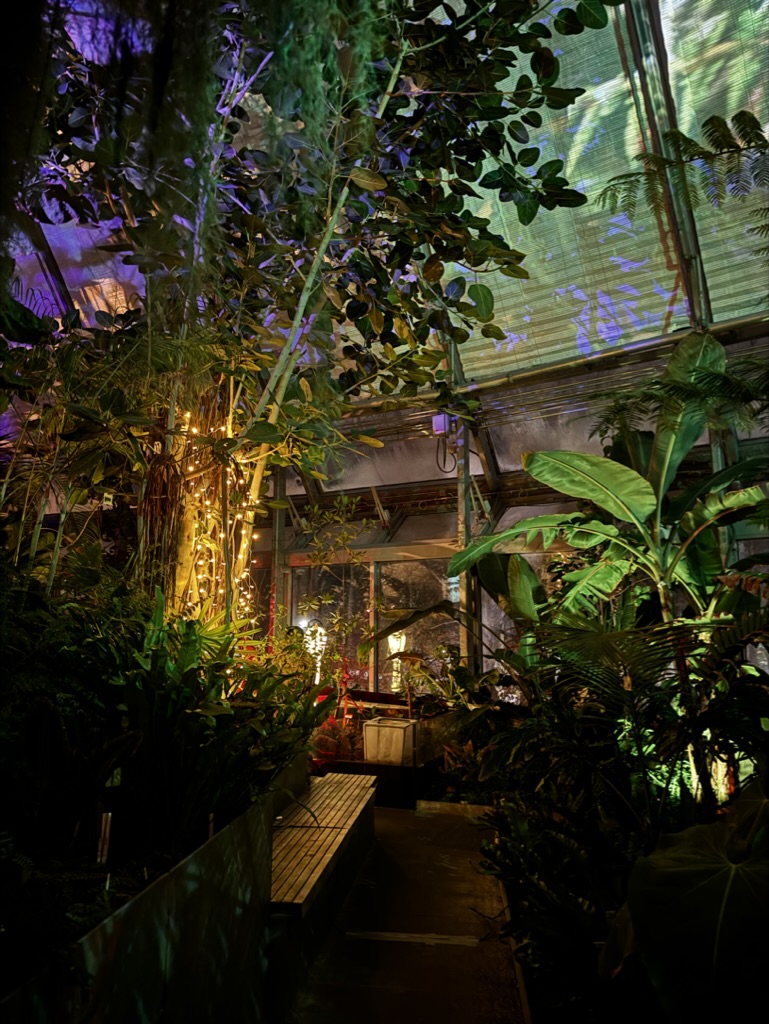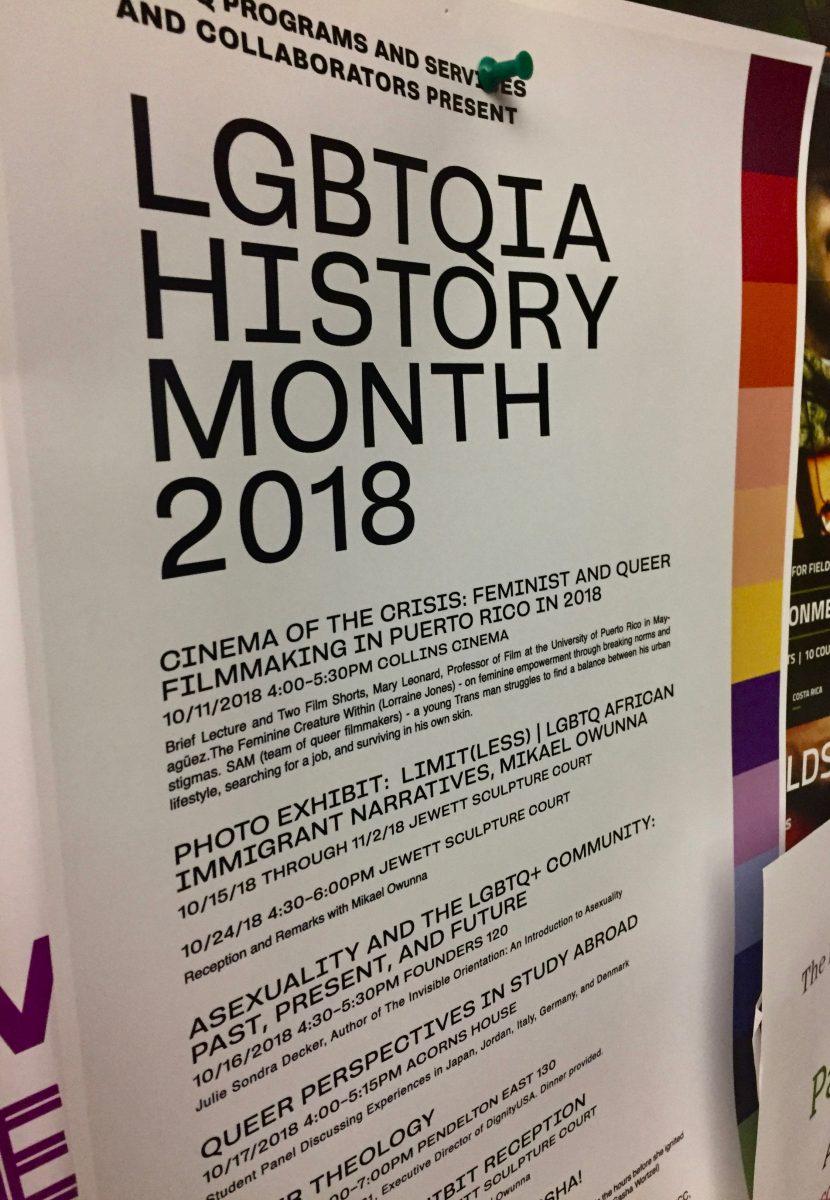Note: The following column uses the word ‘queer’ as a shorthand for LGBTQIA+ identifying individuals, with the understanding that not all LGBTQIA+ students wish to reclaim it from its previous use as a slur; we use it here to reflect the term’s frequent use on campus as well as a more inclusive umbrella term for the entire community.
Student surveys in 2016 indicate that at least 38 percent of Wellesley students identify as some sexual orientation other than heterosexual. As our presence on campus grows, LGBTQIA+ life on campus expands as well. Wellesley College has a vibrant queer community, including eight organizations dedicated to different identities within the community, co-ops known for their largely queer membership/attendance and the official Wellesley resources that the administration provides. Our orgs on campus are currently as follows:
Wildcards is a closed group for students that identify anywhere on the asexual or aromantic spectrums. This organization holds formal meetings once a month, but also organizes other community-building activities such as movie nights and a-spectrum dinners.
Siblings, a closed org for trans/ nonbinary students, serves as a space for students to discuss issues pertaining to a women’s college environment and the wider world. Its private Facebook group is its most active aspect, facilitating clothing swaps and allowing students to give one another advice.
Tea Talks is a closed social-support group for LGBTQIA+ siblings of Pan-Asian descent. It meets weekly to create community space to explore, question and affirm collective and individual experiences.
blackOUT serves to create an inclusive and safe space for all students of African descent at Wellesley who identify as LGBTQIA+. The organization aims to provide a tangible community for black queer and trans students, both on campus as well as in the greater Boston community, and serves as a support system on a personal, social and academic level.
Familia is a closed group for LGBTQIA+ & Questioning Latin@/ Latinx students. Its meetings create a space for members to talk about their identities as queer/Latinx as they feel comfortable.
South Asian Queers (SAQ) is a newly formed group on campus for LGBTQ students of South Asian descent.
Sexuality and Gender Alliance (SAGA) is an org for all Wellesley students within the LGBTQIA+ community and those questioning their sexual/romantic orientation or gender identity. Its specific focus is on support, advocacy and political action for the wider LGBTQIA+ community. Recent events range from “How Do I Talk To My Family About Race?” a community conversation strategizing how to talk to white family members in the wake of the election, to Lesbian Movie Night screening D.E.B.S. in conjunction with the English Department.
Tea Talks, blackOUT, FAMILIA and SAQ also form the Queer and Trans People of Color Collective (QTPOCC), whose mission statement affirms that it will provide a safe space for LGBTQIA+ students of color to support one another on a personal, social and academic level; provide insight regarding resources available to students of color; effectively organize around issues that affect LGBTQIA+ students of color; preserve the history of LGBTQIA+ students of color at Wellesley and guard against institutional memory loss; maintain connections between students and LGBTQIA+ faculty, staff and alumnae of color and promote cultural and political awareness among queer, transgender/gender non-conforming and questioning students of color and the campus at large.
While we have diverse and numerous queer orgs on campus, they of course do not encompass all the LGBTQ identities our students represent. We as Queer Council Advisory Board members recognize this. For example, we also have a representative at-large for queer athletes, but we also know that queer students at Wellesley have many strong communities of their own outside of orgs, and new orgs will always have place in the queer community as a whole. For example, both Wildcards and SAQ were formed just this academic year.
Two co-ops on campus are also known for their safe and inclusive spaces for queer students. The Hoop, which is located on the bottom floor of Lulu, provides students of all identities with a great study place— and amazing nachos! Next door to the Hoop is Punch’s Alley, also known as the Pub. The Pub is best known for its Pub Nights, which occur most Thursday nights and provide students with a great place to dance—or drink, if they are of age. Pub Night is known beyond the Wellesley campus and it is not surprising to find an Olin College or Babson College student wandering around on these nights.
Among the official Wellesley College resources offered to LGBTQIA+ students is the office of LGBTQ Programs & Services, headed by Dr. Leah Fygetakis. Its office is currently located in Acorns House. This location allows collaboration with the rest of the Office of Intercultural Education, but remains problematic in how it affects Acorns’ designation as a space for students of Latinx and Asian descent. Among her many roles on campus, including general advisor to queer students, Dr. Fygetakis directs education, training and programming efforts for the Wellesley queer community. She also facilitates the campus’s LGBTQIA+ community Facebook page and mailing list, providing students with information regarding upcoming events by the office itself or any of our queer organizations. In addition to providing support and advice for queer students with similar backgrounds, the student organizations and the Assistant Dean are also working to bring attention to and find solutions to various issues that LGBTQIA+ students still face.
While campus life for the aforementioned 38 percent of students is flourishing, our campus and especially our official resources are not without issues. For example, despite around five percent of students identifying as somewhere on the trans spectrum, the overall mindset at Wellesley has not shifted to include the practice of giving pronouns during introductions outside of queer orgs. Many trans students, this columnist included, take it upon themselves to provide their pronouns during introductions. It is our hope that this practice becomes commonplace in the classroom and beyond. We will address issues such as these in further columns, but we’d like to hear your thoughts on the matter.
– QCAB (Queer Council Advisory Board)








